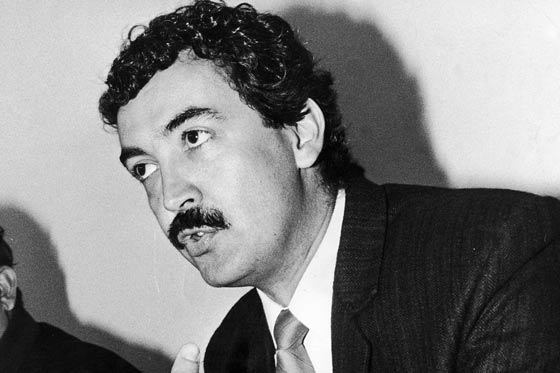Latin America
Related: About this forumColombia's ex-FARC rebels to take up arms again
Former leaders of the Revolutionary Armed Forces of Colombia (FARC), which renounced fighting after reaching a peace deal with the government in 2016, announced on Thursday they will take up arms again against the state. Ivan Marquez, former FARC chief negotiator to the peace talks, said in a video posted online that the government has failed to fulfill the terms of the agreement.
"We announce to the world that the start of the second Marquetalia (birthplace of the FARC in central Colombia) has begun under the protection of the universal right that assists all the peoples of the world to rise in arms against oppression," Marquez said. He read the statement in company of other former FARC leaders Jesus Santrich and Hernan Dario Velasquez, among others, who were armed in the video. The video was taped in a jungle setting and images of deceased rebels could be seen in the backdrop.
"It is the continuation of the guerrilla struggle in response to the state's betrayal of the Havana peace agreements," said Marquez. The peace agreement was signed in Cuba's capital following two years of negotiations with the government of then-President Juan Manuel Santos.
Not all Colombians were in favor of the peace deal, which offered rebels amnesty in exchange for laying down arms, and subsequent presidential elections were won by the more hardline candidate, Ivan Duque.
The FARC said it will seek to "coordinate efforts" with the still active, though smaller National Liberation Army (ELN). The rebels will not resort to kidnapping as a way to raise money to fund their struggle, but will turn to businesses and cattle ranchers sympathetic to their cause to make voluntary donations, he said.
http://www.chinadaily.com.cn/a/201908/30/WS5d6879b1a310cf3e35568b9e.html
Judi Lynn
(160,450 posts)knew the chances the peace would last were probably very meager. The racist, classist hard right which has used the paramilitaries (death squads) to do social cleansing, removing people they didn't like for them, stealing land by terrorizing farmers and their families off their ancestral land under total threat of death, with examples, knew they were probably going to return to murdering as many dissidents as they could find until they are all gone, and THEN declaring "peace." The peace of the dead.
There's a lot available for anyone who researches the history of what happened in the past:
Colombia's historic peace plan has a bloody legacy to overcome
Christopher Woody Sep. 25, 2016, 6:14 PM
...
An unholy alliance
In 1984, Colombia reached a deal with FARC rebels that allowed the group and other leftist rebels to reenter Colombia's legitimate political sphere. The Patriotic Union (UP), a political party, emerged from this agreement, forming in November 1985.
The UP performed well in Colombia's 1986 elections, but the backlash — a violent campaign to eliminate the newly formed leftist party and its sympathizers — soon started.
Colombia politics patriotic union paramilitary violence
In 1987, the UP's leader and presidential candidate from the previous year, Jaime Pardo, was gunned down by a 14-year-old with ties to a Medellin cartel member.
Between 1986 and 1990, some 4,000 to 6,000 members of the UP were slain. In the party's first four years of existence, a member or supporter was killed once every 39 hours.
Ahead of the 1990 presidential election, 70% of the center-left candidates were assassinated, including UP candidate Bernardo Jaramillo, according to Greg Grandin, a historian and professor at New York University.
"I believe, and I say it with all sincerity and at times coldly, that I know they are going to assassinate me," Jaramillo said before he was killed.
More:
https://www.businessinsider.com/colombia-peace-deal-history-of-violence-against-rebels-and-leftists-2016-9

Bernardo Jaramillo
